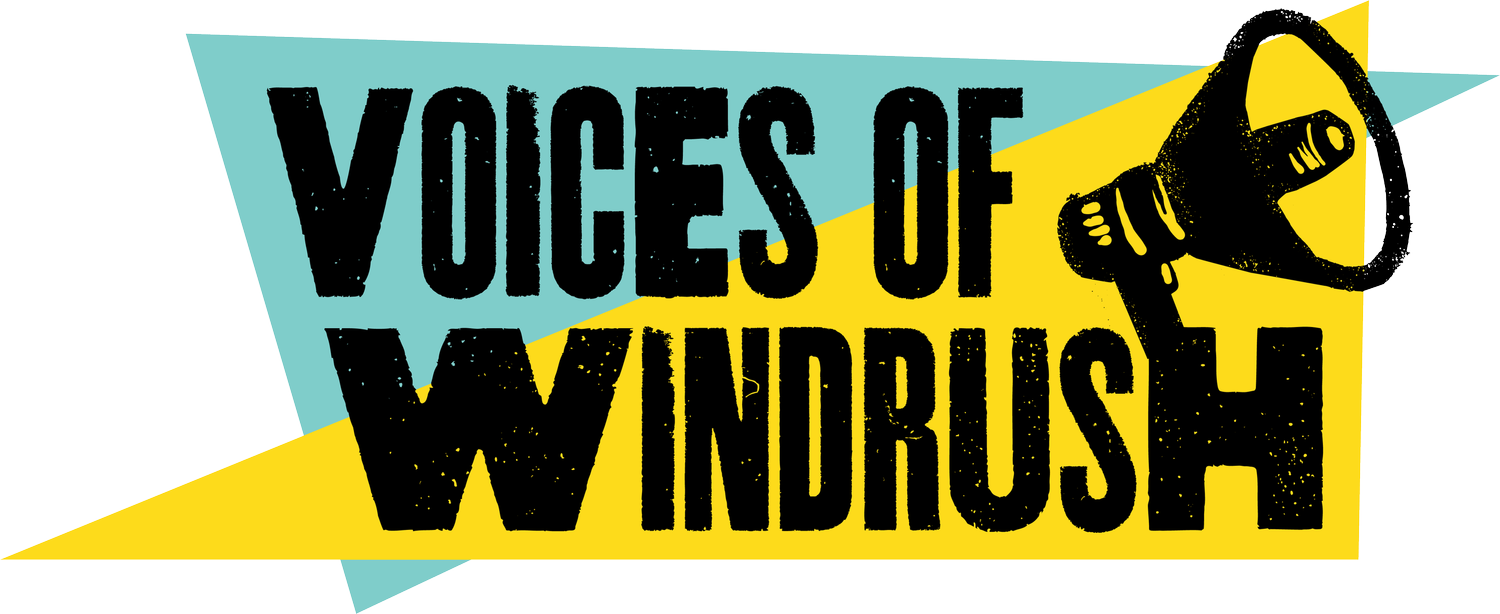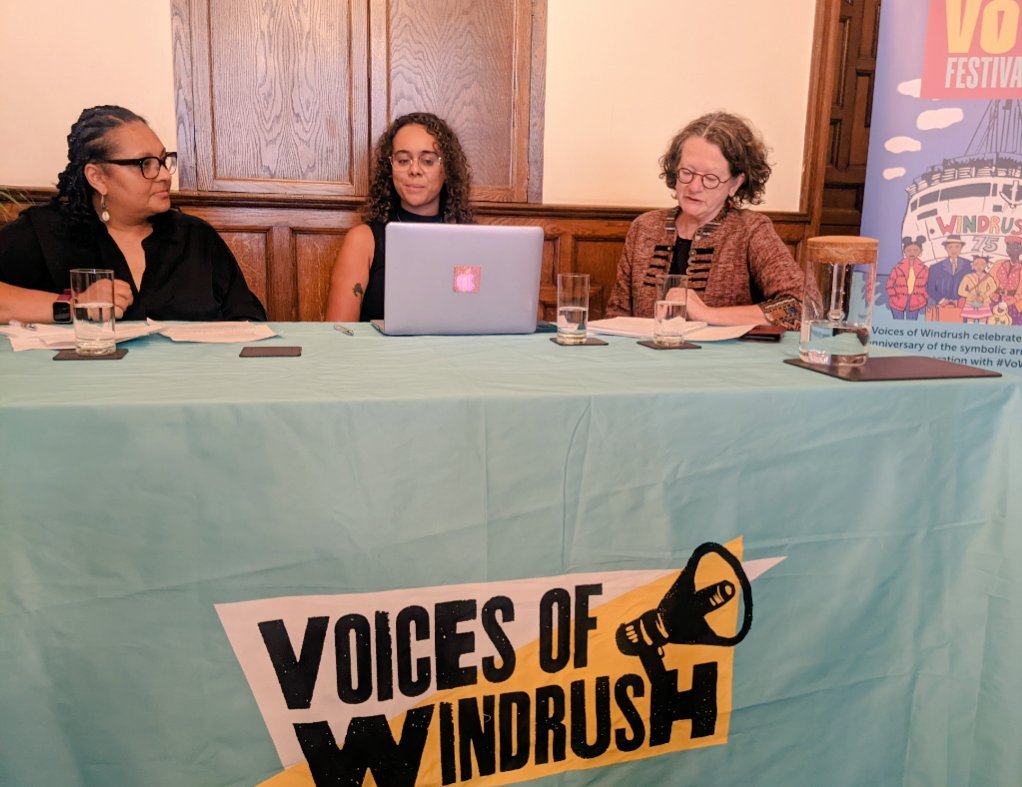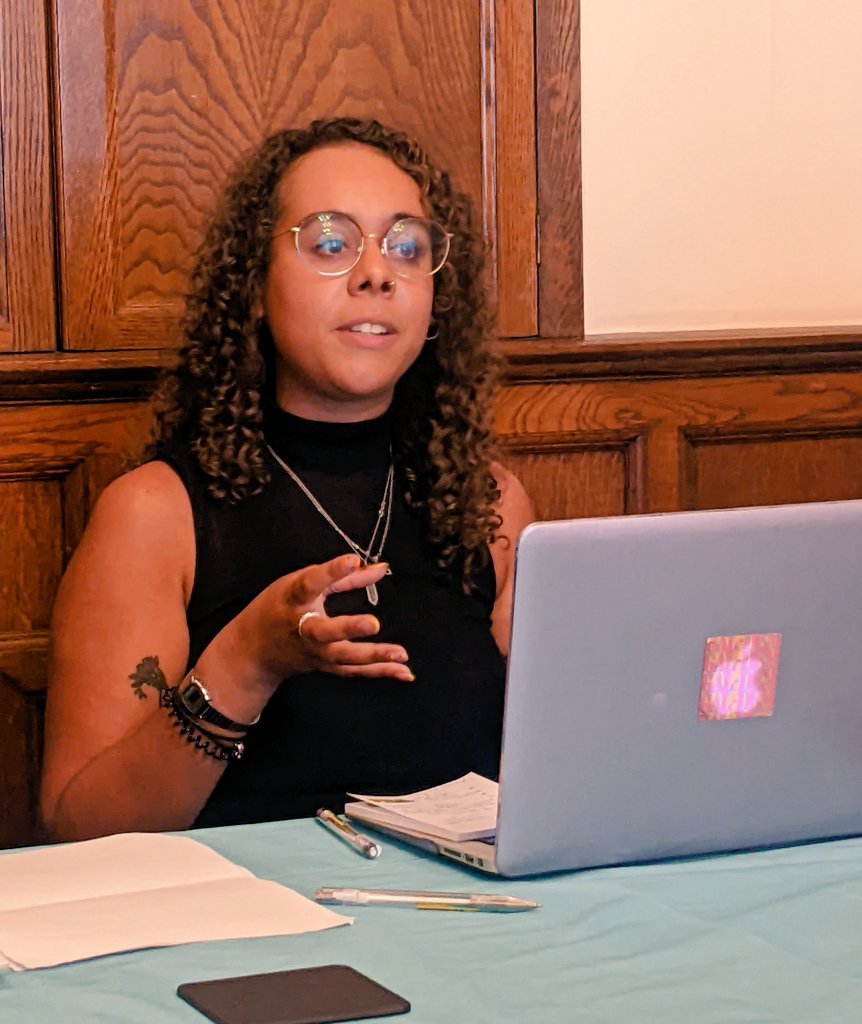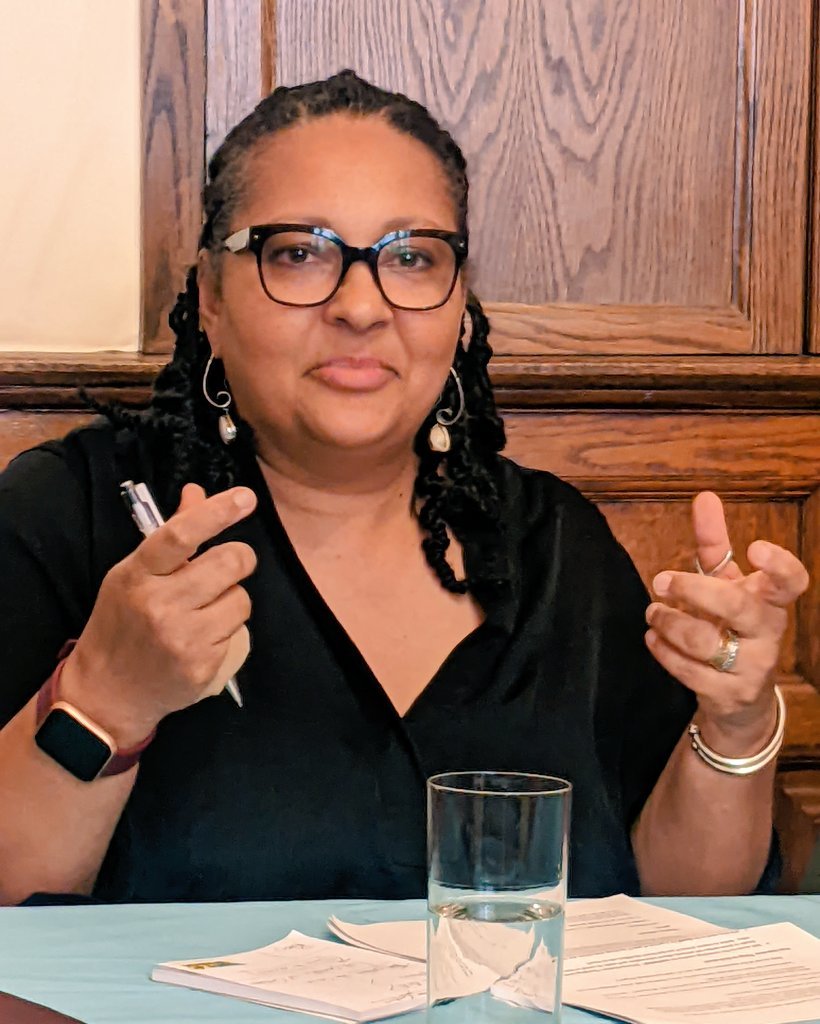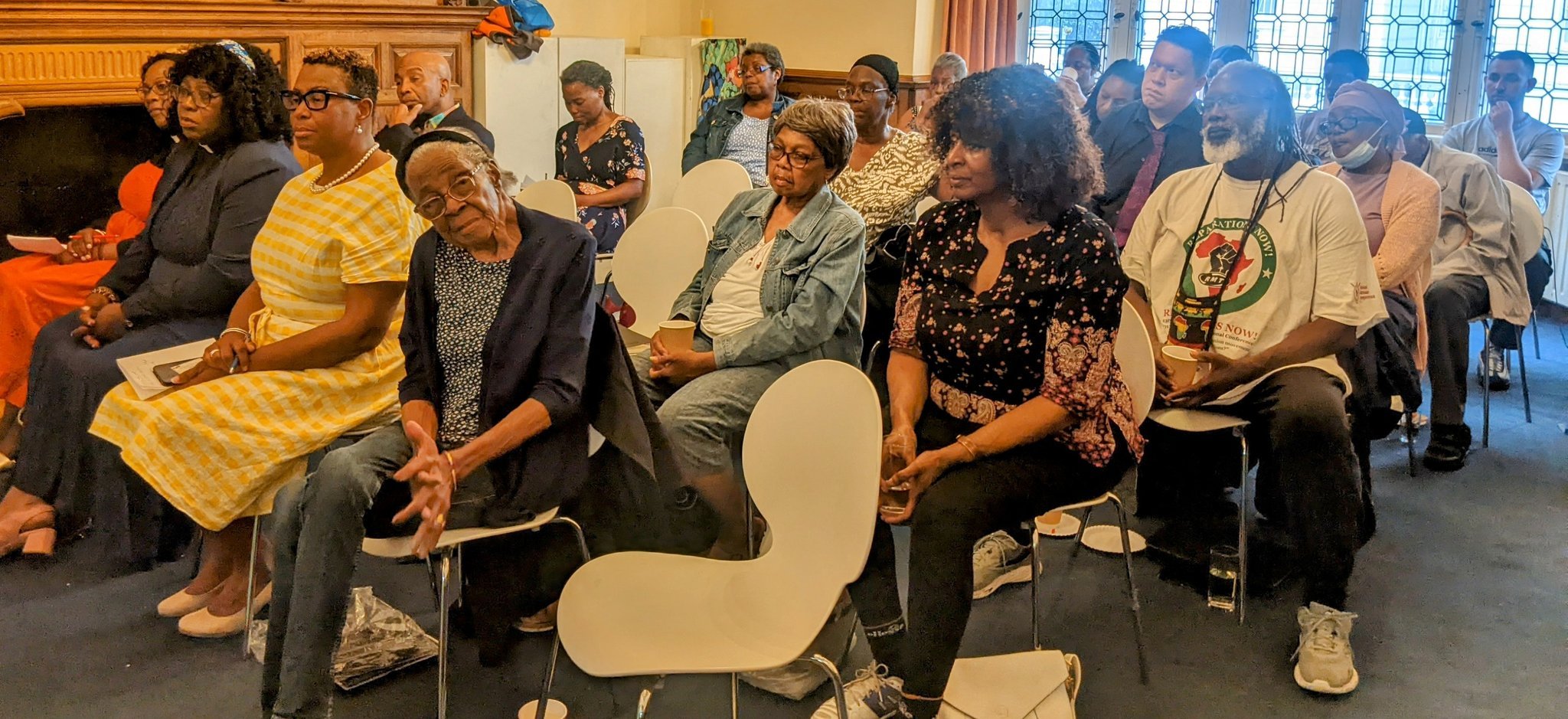Importance of Oral Histories
The VoW Festival examined the importance of oral history in both recording the anthropological conditions & experiences of the Windrush Generation, in the context of the scandal, with Dr Juanita Cox and PhD student Melissa Williams. The session was introduced by HE Janet Charles, Acting High Commissioner of Dominica & moderated by Fran Swaine.
Dr Cox is examining the Windrush Scandal in a Transnational & Commonwealth Context, using a mixed methodology of archives & orality. Her challenge includes ethics, the mistrust of universities, and that many documents are only available up to 1980. Dr Cox's work is the retrospective making of history using a variety of interview methods to suit the cohort. She found the traditional use of recordings proved best & will stand the test of time as memories fade.
Melissa Williams is investigating the Windrush Scandal in a socio-legal study of the role of immigration legislation in the ontological 'un-homing' of British, Windrush Descendants. She will use qualitative data to draw upon information derived & developed by those of Afro-Caribbean lineage, particularly Jamaican because of her own heritage, using interviews, books, poetry, & music. She will examine how the past experiences of the Windrush community impacts on the future, drawing on the narratives of identity & belonging, questioningwhether people caught up in the Windrush Scandal could ever feel British. She'll seek to understand how political discourse & legislation impact the narrative of what it means to feel British & how cultural theories & family relationships also inform a sense of belonging.
Dr Cox describes the Windrush Scandal as a critical moment in history. It was a huge moment & those affected had, and probably still have, no definitive idea why they'd been caught up in it. Her work has taken her outside of the Caribbean community to find out who else is affected & she's interviewed people unaffected by the scandal. Dr Cox thinks governments see the community as a problem & that's evident from how the Windrush compensation scheme operates. Her work is hampered by the fact that people don't like to speak about immigration and their own status. Her search found a recording of Baroness Rosalind Howells speaking about deportations in 2009 as one of the few original sources but understands that the community has more pressing issues to contend with. But because memories are selective & fade, hence the importance of oral history projecs.
Both Melissa & Dr Cox agreed with audience comments on the way that Western buracratisation of life conflicts with African & Caribbean culture in respect of birth names, dates etc., which came to be one of the issues impacting on theWindrush scandal. It was not uncommon for names to change between birth, registration and baptism, causing all manner of documentation with variations of data and even spelling. The British state forces its on culture & practices on the rest of the world, often with tragic effect. Audience members thought the term Windrush was problematic and pigeon holes the Black community rather than accept that its members are British and full members of the society.
Both Dr Cox and Melissa agreed the term was problematic but that the description has tacticaluse. It was agreed that oral history is especially crucial in margianlised groups without the methods of recording, and resources for capturing memories which fade. They'll be difficulties in making such records open to the public, but they'll exist & be subject to retrieval.
